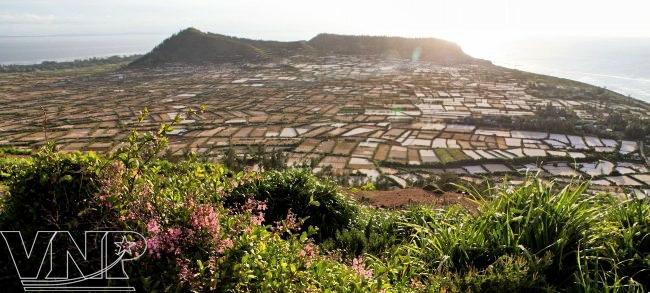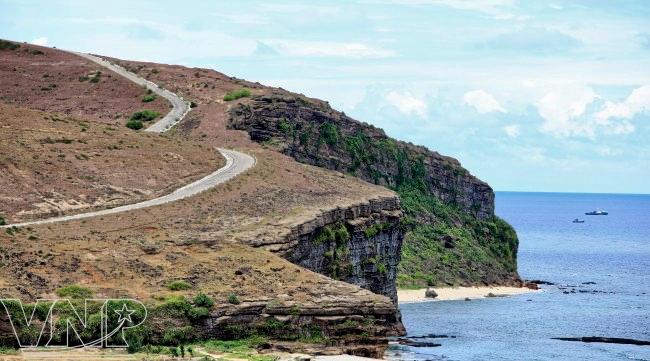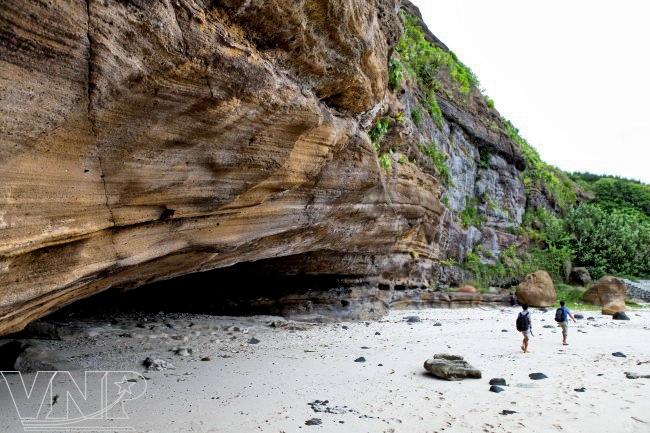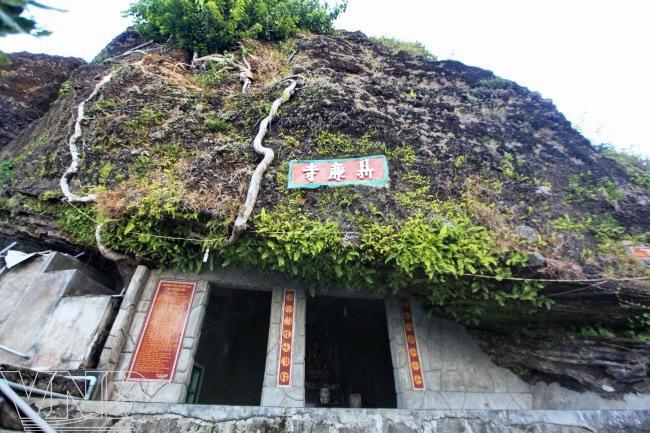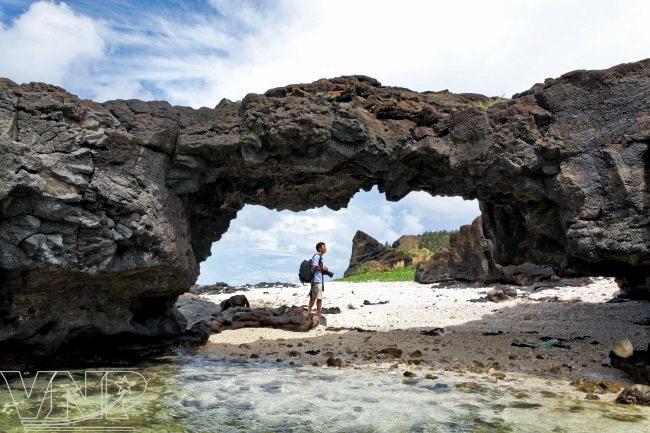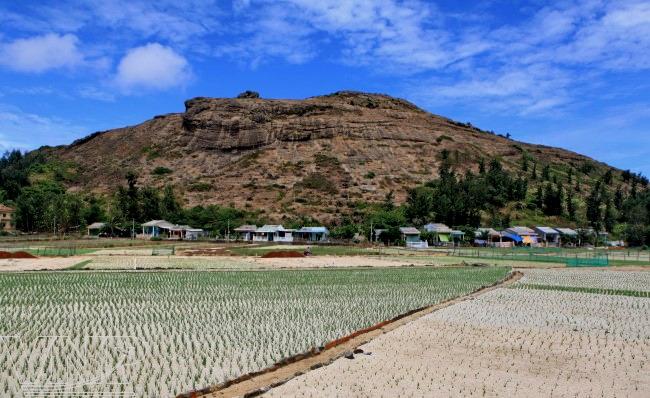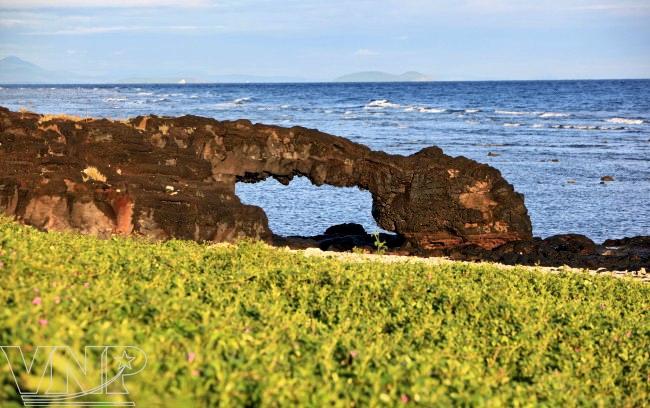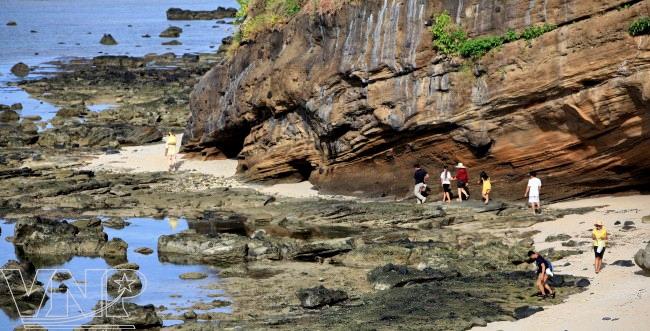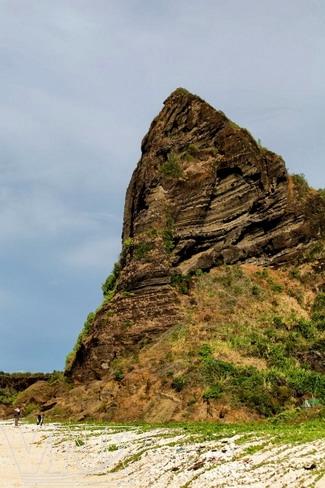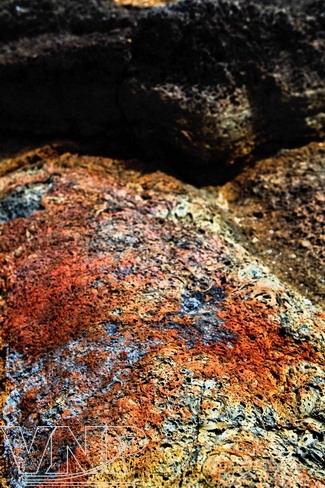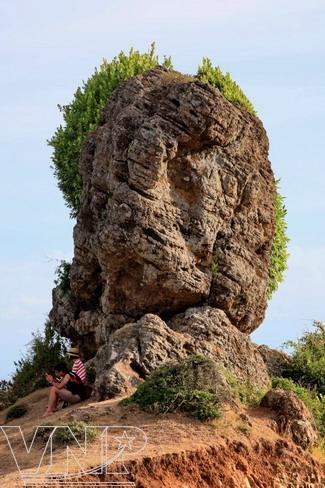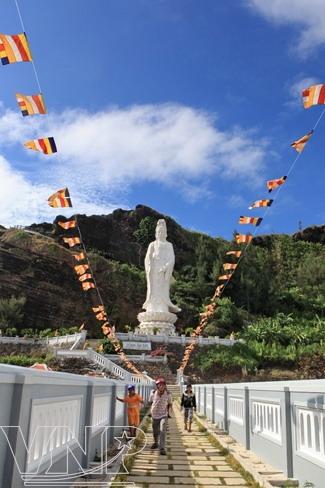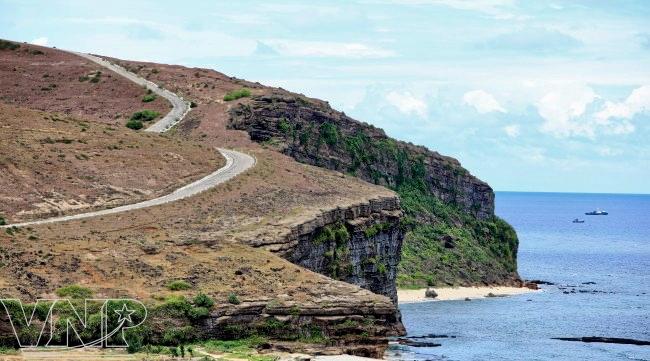
Only a few people know that Ly Son Island in Quang Ngai Province in Central Vietnam was created from five extinct volcanoes during the prehistoric age.
Only a few people know that Ly Son Island in Quang Ngai Province in Central Vietnam was created from five extinct volcanoes during the prehistoric age.
With wonderful scenery left by these volcanoes, the island has now become an alluring destination, attracting a large number of tourists.
Seen from the shore on a fine day, Ly Son Island looks like a pyramid on the sea with its top being the peak of Thoi Loi Mountain.
Among five mountains founding on the island, Thoi Loi is a rocky one.
After a long time climbing the tortuous path on the mountain, tourists reach the peak of Thoi Loi where they have a panoramic view of the garlic field that looks like a chess-board and an immense blue sea dotted with fishing boats in the distance.
According to the old people in Ly Son, the hollow of the extinct Thoi Son Volcano was formerly a primitive forest of different valuable trees and had abundant fresh water resources which ran at the foot of the mountain to form Chinh Stream.
Then, the forest was totally destroyed and the stream no longer exists. So far, there is only a relic left – Hang (Cave) Pagoda.
Due to the sea’s impact on geology for hundreds of years, the layers of rock have been eroded and have formed a cave in the shape of a pagoda.
Unlike Thoi Loi Mountain that has only rocks, Gieng Tien Mountain has a special fertile soil, similar to the Bazan soil in Tay Nguyen (the Central Highlands).
The locals often use this soil and sand to fertilize the garlic fields. Thanks to these fertilizers, the variety of garlic grown in Ly Son has a special flavour that is hardly known in other places.
Around the crater of Gieng Tien Mountain that is smaller than that of Thoi Loi Mountain is a piece of land where no plants can grow.
According to the beliefs of the locals, it is the sacred oil that was used as ash on the graves of soldiers of Kiem Quan Bac Hai Squad who laid down their lives when protecting the Hoang Sa (Paracel) Islands during the reign of King Minh Mang (1791-1841).
To the east of Gieng Tien Mountain is a strange pagoda, called Duc by locals.
Visiting the pagoda, tourists learn a story about the Goddess of Mercy who traveled on Bac Hai Sea to save fishermen in distress. Seeing fishing boats being sunk by storms, she tore her robe into thousands of pieces and threw them into the sea. These pieces of cloth turned into dolphins which saved fishermen on the sea.
Due to their belief, the locals made a statue of the Goddess of Mercy, 27m high, facing the sea and placed it at the pagoda with the hope that the Goddess of Mercy will protect fishermen when they go to the sea.
Although the relic of three extinct volcanoes is only small mounds, the presence of cold lava is seen in many places on Ly Son Island, forming a wonderful landscape. They are rocks in different shapes that leave a long-lasting impression on tourists to the island.
|
A panoramic view of Gieng Tien Mountain from the peak of Thoi Loi Mountain. The road to the peak of Thoi Loi Mountain. At the foot of Thoi Loi Mountain. Duc Pagoda is located halfway up Gieng Tien Mountain. The cold lava from the exinct volcanoes millions of years ago forms a beautiful scenery. A garlic field at the foot of the mountain.
The rain-water reservoir built on an area which was formerly a primitive forest.
"The Heaven Gate" was formed by the cold lava from the exinct volcanoes millions of years ago.
Beautiful cliffs near Hang Pagoda on Ly Son Island. The remaining part of Gieng Tien Volcano. A colorful stone on the mountain. At the peak of Thoi Loi Mountain. The way to Duc Pagoda. |
(Source: VNP)

